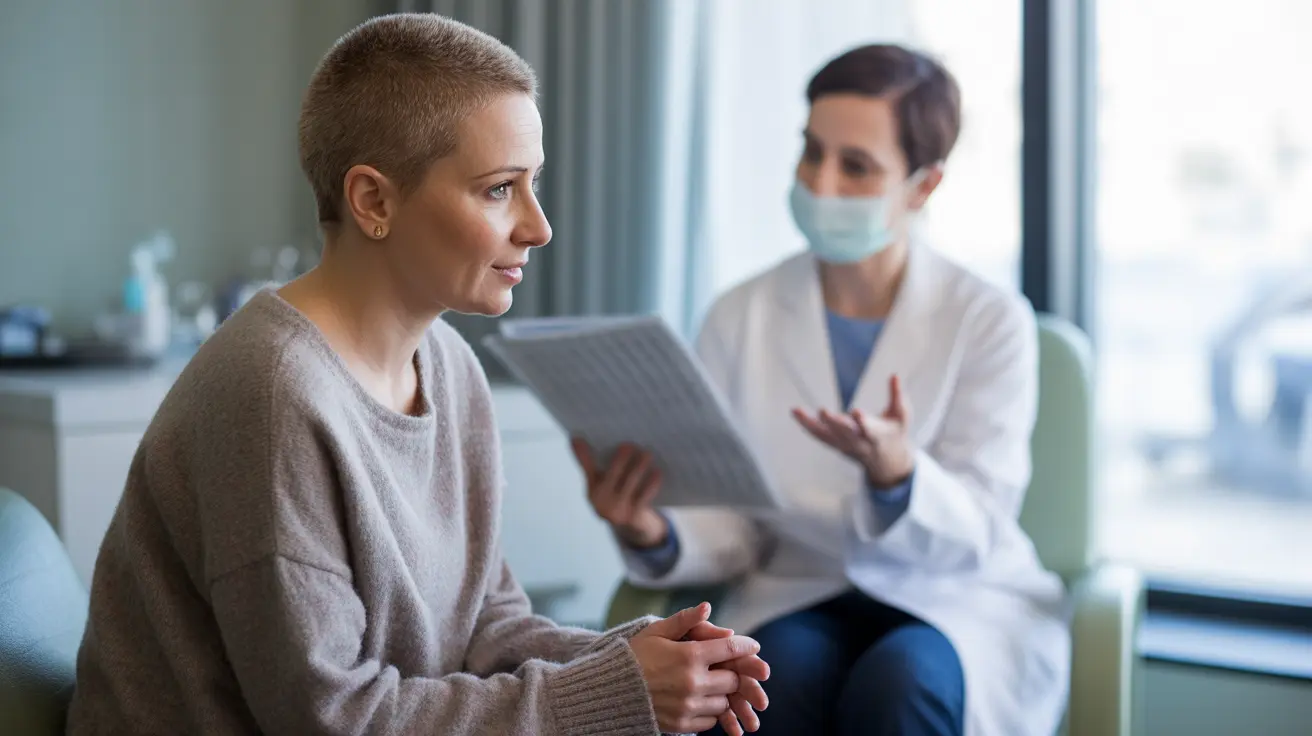Being diagnosed with COVID-19 while undergoing chemotherapy can be an overwhelming experience. Cancer patients receiving chemotherapy need to understand how this situation affects their treatment plan and what steps they should take to protect their health. This comprehensive guide addresses the crucial aspects of managing cancer care when faced with a COVID-19 infection.
Understanding the Impact of COVID-19 on Chemotherapy Treatment
When a cancer patient contracts COVID-19, their oncology team must carefully evaluate the situation to determine the safest course of action. The decision to continue, pause, or modify chemotherapy treatment depends on several factors, including the type and stage of cancer, the severity of COVID-19 symptoms, and the patient's overall health status.
Treatment Modifications During COVID-19
Healthcare providers may recommend one of several approaches when a patient tests positive for COVID-19:
- Temporarily pausing chemotherapy until COVID-19 symptoms resolve
- Adjusting the chemotherapy dosage or schedule
- Switching to alternative treatment options
- Continuing treatment with enhanced monitoring if benefits outweigh risks
Increased Risk Factors for Cancer Patients
Chemotherapy can affect the immune system's ability to fight infections, potentially increasing the risk of severe COVID-19 complications. Cancer patients undergoing treatment should be aware of factors that may impact their vulnerability:
- Compromised immune system due to chemotherapy
- Underlying health conditions
- Type and stage of cancer
- Overall physical condition
Essential Preventive Measures
Cancer patients receiving chemotherapy must take extra precautions to minimize their risk of exposure to COVID-19:
- Maintaining strict hand hygiene
- Wearing well-fitting masks in public spaces
- Limiting contact with people outside their household
- Following social distancing guidelines
- Ensuring all caregivers are vaccinated and following safety protocols
Vaccination Considerations
COVID-19 vaccines play a crucial role in protecting cancer patients, though their effectiveness may be reduced in those receiving chemotherapy. Patients should consult their oncology team about optimal timing for vaccination and potential need for additional doses.
Warning Signs and Emergency Response
Cancer patients on chemotherapy should be particularly vigilant for signs of COVID-19 complications:
- Fever above 100.4°F (38°C)
- Severe fatigue or weakness
- Difficulty breathing
- Chest pain
- Confusion or mental changes
Immediate medical attention is crucial if these symptoms develop, as early intervention can significantly improve outcomes.
Frequently Asked Questions
What happens to chemotherapy treatment if I get COVID-19 during my cancer care?
Your oncology team will evaluate your specific situation and may temporarily pause or modify your chemotherapy treatment. The decision depends on factors such as your cancer type, COVID-19 severity, and overall health status. Your treatment plan will be adjusted to ensure the safest possible approach while maintaining effective cancer care.
How does chemotherapy affect my risk of severe illness if I catch COVID-19?
Chemotherapy can weaken your immune system, potentially increasing your risk of developing severe COVID-19 complications. This increased vulnerability means you may be more susceptible to serious respiratory issues and other complications, making preventive measures especially important.
What precautions should cancer patients on chemotherapy take to prevent COVID-19 infection?
Cancer patients should follow enhanced safety measures including strict mask-wearing, maintaining physical distance, practicing thorough hand hygiene, avoiding crowds, and ensuring all close contacts are vaccinated. Regular health monitoring and prompt reporting of any symptoms to healthcare providers is essential.
Are COVID-19 vaccines safe and effective for patients undergoing chemotherapy?
COVID-19 vaccines are generally safe for cancer patients, though their effectiveness may be reduced during chemotherapy. Your oncologist can advise on the best timing for vaccination and whether additional doses are recommended based on your treatment schedule and immune status.
What are the warning signs of COVID-19 complications in cancer patients receiving chemotherapy?
Key warning signs include high fever, severe fatigue, breathing difficulties, chest pain, and mental status changes. Cancer patients should seek immediate medical attention if they experience any of these symptoms, as they may indicate serious complications requiring urgent care.




